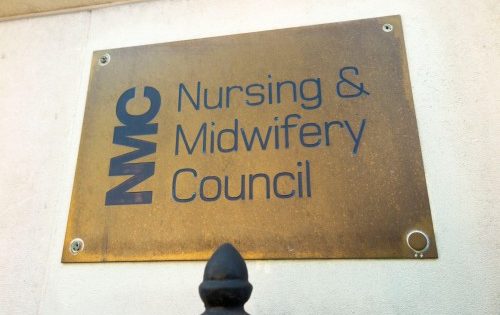New NMC guidance on registrants’ freedom to express views and beliefs

New guidance aims to clarify rules for nursing and midwifery professionals on safely expressing their views with patients, colleagues and others, according to the Nursing and Midwifery Council.
The regulator said the guidance was designed to provide “clarity” to nurses, midwives and nursing associates, in order to support them to express their beliefs “appropriately”.
“At the NMC, we firmly believe that everyone has the right to freedom of expression”
Matthew McClelland
The NMC noted that the updated guidelines were also aimed at helping its decision makers in its fitness to practise process.
The regulator said the move followed a number of reported cases around protected beliefs and freedom of expression.
The guidance, it said, reaffirmed that everyone has the right to freedom of thought, conscience and religion, and to freedom of expression.
However, there may be circumstances where a professional says or does something that could impact their fitness to practise, meaning the NMC may need to take action, it warned.
The NMC said the guidance was developed after engagement with key partners and that it included examples to help decision makers approach cases in a consistent way that is rooted in the law.
This, it said, took into account where and to whom comments were made, whether there was a link to someone’s professional practice or status, and the way in which views or beliefs were expressed.
The guidance stated that the NMC does not expect professionals to “conceal” their personal beliefs at work, but it may find their practice impaired, if they express a personal belief in a certain way.
It said this could be one that “constitutes discrimination, harassment, bullying or victimisation”, or conflicts with the Code’s requirement to treat patients with kindness, respect and compassion.
Likewise, it could be a situation where a registrant was not delivering the fundamentals of care effectively or “not listening to people and responding to their preferences and concerns”, it said.
Specific examples provided by the regulator centred on registrants expressing personal views within the work environment on transgender issues and vaccination conspiracy theories.
The guidance also covers similar examples of the expression of views by registrants outside of the work environment.
Matthew McClelland, executive director of strategy and insight at the regulator, said: “At the NMC, we firmly believe that everyone has the right to freedom of expression.
“Our Code requires nurses, midwives, and nursing associates to put the people in their care first,” said Mr McClelland.
“That means treating people with kindness and respect and not expressing their personal beliefs in an inappropriate way,” he noted.
“Occasionally, concerns are raised about the way in which someone on our register has expressed themselves so it’s important our decision makers in fitness to practise are clear on the right way to reach swift and safe decisions that are rooted in law.
“In turn, we hope this will provide clarity to nurses, midwives and nursing associates about how to express their beliefs without raising concerns about their fitness to practise or damaging public confidence in our nursing and midwifery professions,” he added.






